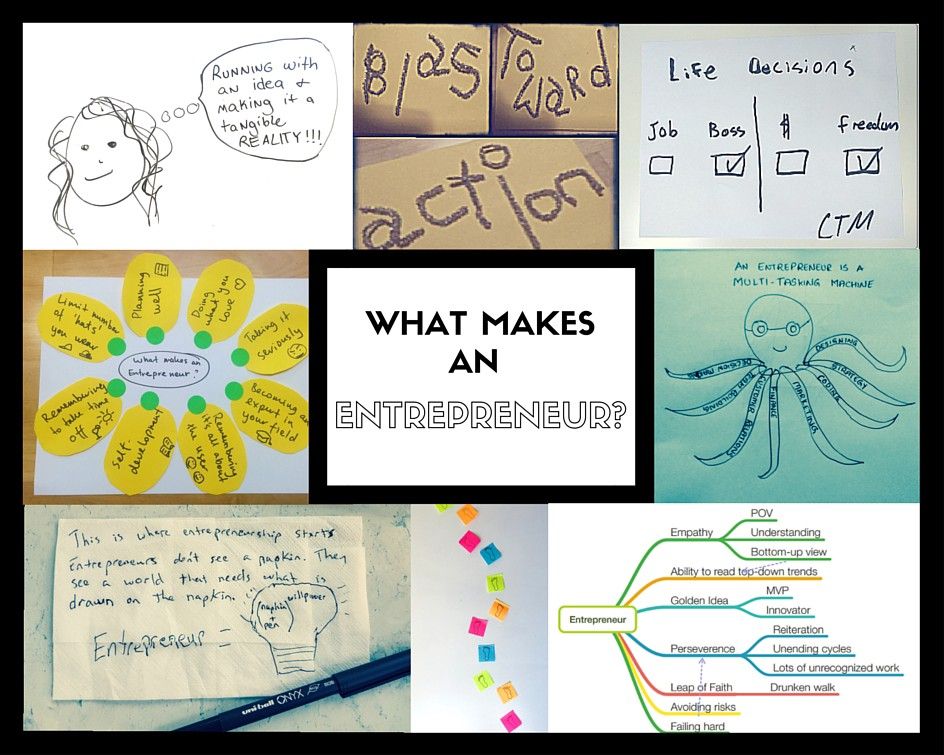What does it really mean to be an entrepreneur?


“I want to be an entrepreneur.”
I hear these words constantly on my college campus. And I can’t help but cringe each time.
Over the past decade, entrepreneurship has become the “new hot thing.” As a social experiment, I once told my mom’s book club that I was studying “entrepreneurship,” and the room burst into golden light and singing cherubs. Where I’m from — a small town in South Carolina —becoming an entrepreneur is synonymous with making it big.
But among millennials like myself, entrepreneurship is white hot. It’s seen not as an occupation, but rather an identity, a way of life — quite a sexy one. It says “I have creative ideas” and “My job is better than yours.” The media has played a huge role in this glamorization: HBO’s Silicon Valley presents entrepreneurs as scrappy underdogs and startups as fun-filled arcades. The popular press consistently glorifies up-and-coming founders (like Elizabeth Holmes) who are destined to become “the next Mark Zuckerberg.”
So of course, it’s perfectly understandable that many students are settling on entrepreneurship as the ideal career path. The reason I have a problem with students saying “I want to be an entrepreneur” has nothing to do with entrepreneurship itself. My summer at Matter, a media startup accelerator based in New York and San Francisco, has left me with only excitement and appreciation for all of the incredible things entrepreneurs are doing for people across the globe.
My problem with that statement is that an entrepreneur is not something you should aspire to be. From talking to all of the entrepreneurs in the Matter community, I’ve learned that saying “I want to be an entrepreneur” is getting it backwards. It’s putting the cart before the horse. First, you should aspire to solve a problem or fill a need you’ve observed in the world. Entrepreneurship is the byproduct of turning that aspiration into reality. The noun is the result of the verb. Steve Jobs became an entrepreneur not by setting out to become an entrepreneur, but by following his vision to get a computer “in the hands of everyday people.”
Most students also fail to realize that being an entrepreneur is actually really hard. It’s not as easy as having a great idea, dropping out of college, and magically constructing the perfect product. There is no such thing as overnight success. Behind the facade of glitz and glamour are individuals who have risked financial ruin, abandoned stable high-paying jobs, and labored day in, day out to create something of worth. And the lucky few entrepreneurs who have hit the jackpot most likely endured years and years of turmoil (and even depression) to get to that point.
I understand, of course, that these comments may not mean much coming from me —I don’t fully know what it means to be an entrepreneur because I’ve never experienced it firsthand. And despite my working closely with the Matter Six community for 10 weeks, I’m no entrepreneurship expert.
That’s why I took my question to the Matter Six founders themselves. Here’s what they have to say about what it really means to be an entrepreneur:
If there’s one thing I’m certain of with these entrepreneurs, it’s that none of them started their entrepreneurial journey with the goal of becoming an entrepreneur. Each recognized a problem in the world and then created something to solve it. And each went through incredible hardship and chaos to get there. But we’re glad that they did. Because in doing so they became our Matter Six entrepreneurs.

